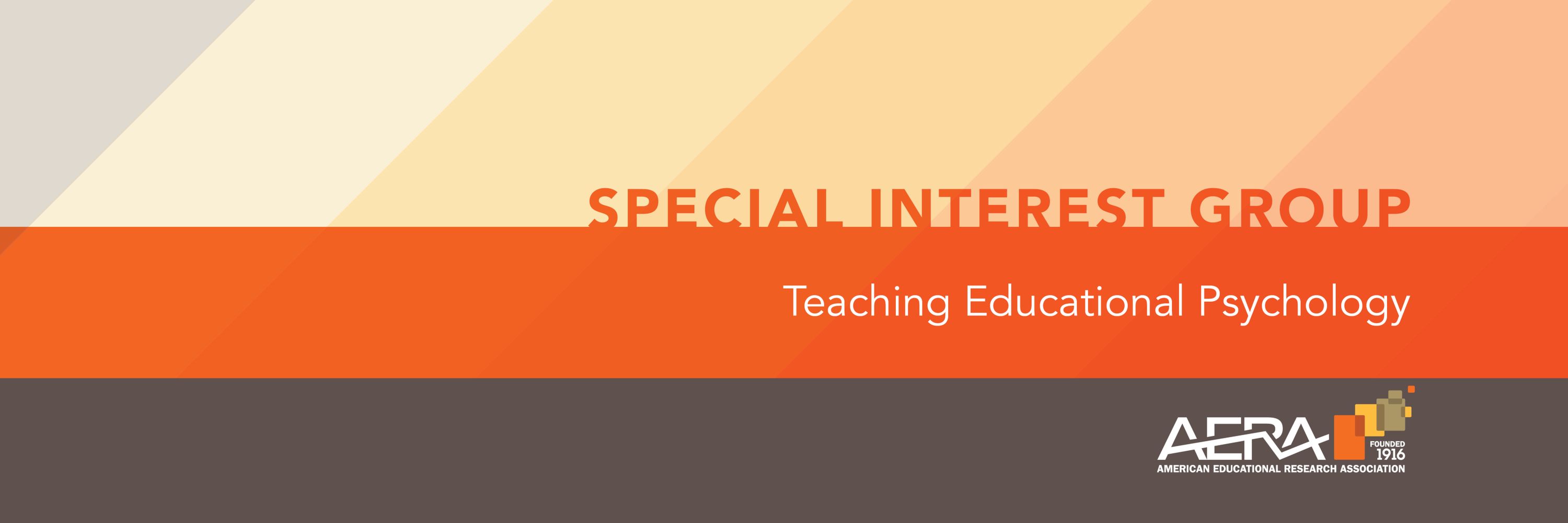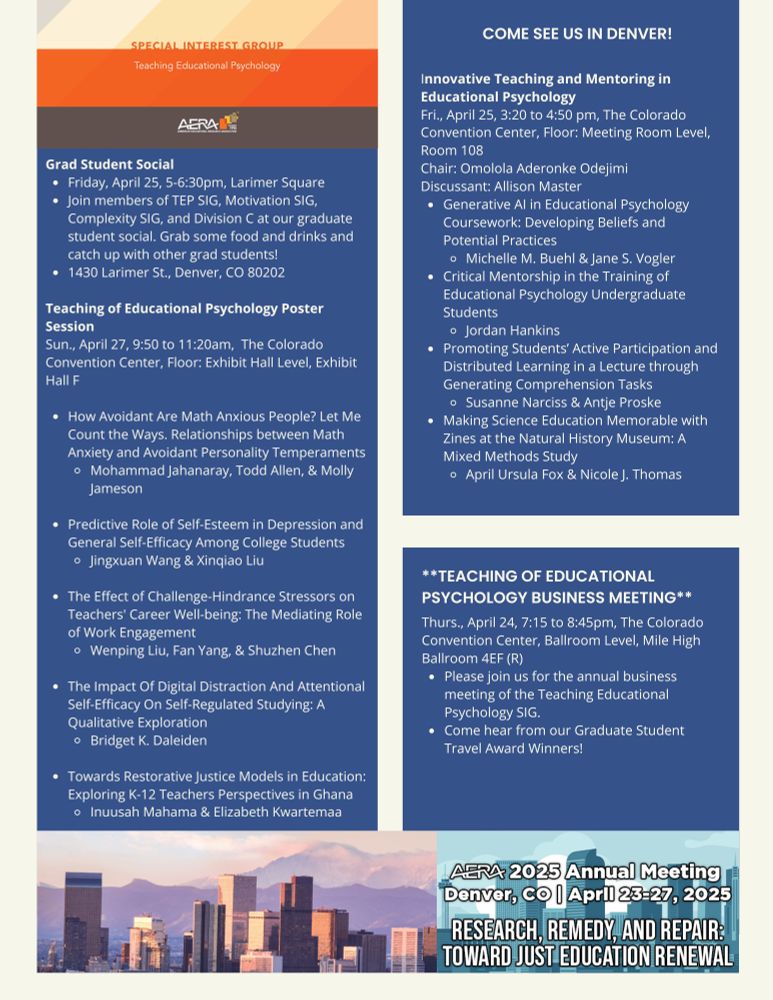AERA Teaching Educational Psychology SIG - Graduate Students
@aera-tepsig-grad.bsky.social
68 followers
92 following
8 posts
Posts
Media
Videos
Starter Packs
Reposted by AERA Teaching Educational Psychology SIG - Graduate Students
Reposted by AERA Teaching Educational Psychology SIG - Graduate Students
Reposted by AERA Teaching Educational Psychology SIG - Graduate Students










